 The purpose of the Unit for the Study of Personality in Politics Media Tipsheet is threefold. First, it offers political reporters looking for a fresh story angle a sometimes unique, often unconventional perspective on politics. Second, it serves as a repository for research-based political analysis. Analyses and predictions in the Tipsheet are, in effect, research hypotheses to be tested prospectively against actual event outcomes, which in turn serve to refine the guiding theory of personality and leadership that informed the analysis and prediction in the first place. Third, the Tipsheet aims to provide voters, reporters, and policymakers with politically unbiased, nonpartisan insights into aspects of political leaders’ and candidates’ personal character likely to impinge on their public lives, policy preferences, decisionmaking, and leadership prospects.
The purpose of the Unit for the Study of Personality in Politics Media Tipsheet is threefold. First, it offers political reporters looking for a fresh story angle a sometimes unique, often unconventional perspective on politics. Second, it serves as a repository for research-based political analysis. Analyses and predictions in the Tipsheet are, in effect, research hypotheses to be tested prospectively against actual event outcomes, which in turn serve to refine the guiding theory of personality and leadership that informed the analysis and prediction in the first place. Third, the Tipsheet aims to provide voters, reporters, and policymakers with politically unbiased, nonpartisan insights into aspects of political leaders’ and candidates’ personal character likely to impinge on their public lives, policy preferences, decisionmaking, and leadership prospects.
November 1, 2020
Anticipating the Outcome of the 2020 Presidential Election
Historian who correctly predicted every election since 1984 makes his call
Fox News, October 30, 2020 — American University Professor Allan Lichtman joins ‘The Story’ to make his prediction on who will win the 2020 presidential election.
By Aubrey Immelman
Unit for the Study of Personality in Politics
November 1, 2020
On July 8, 2019, I announced that the Unit for the Study of Personality in Politics’s Personal Electability Index (PEI) projected that none of the seven front-running Democratic contenders assessed at the USPP — in descending order of PEI scores Joe Biden, Kamala Harris, Bernie Sanders, Amy Klobuchar, Beto O’Rourke, Pete Buttigieg, and Elizabeth Warren — would defeat Donald Trump in the 2020 U.S. presidential election.
At the time, this election-outcome forecast was at variance with contemporaneous polls, for example, an ABC News/Washington Post poll, conducted June 28-July 1, 2019, that showed Trump losing against or statistically tied with the front-runners for the Democratic nomination for president:
Among all adults …, Joe Biden leads Trump by 14 points. But that narrows among the other four Democrats tested against Trump in this poll — an 8-point lead for Kamala Harris, a slight 7 points for Elizabeth Warren, 6 for Bernie Sanders and 4 for Pete Buttigieg.
In the past several months, I have frequently had to field inquiries regarding the status of a projection issued so far in advance of the election — nearly 16 months. For example, on September 29, Cambridge, Mass., psychiatrist John Martin-Joy, M.D., as part of his research for a Psychology Today blog on Joe Biden’s mental state, wrote in an email: “I’m curious if at this point you stand by the PEI’s prediction that Trump will win.”
I responded as follows:
Regarding my simple little PEI heuristic, I have no choice but to “stand by” it; after all, Trump’s personality has not changed significantly since I issued my prediction on July 8, 2019 — nor would one expect it to change at his age, save for organic reasons. … The PEI is blissfully unaware of SARS-CoV-2, the economy, the unemployment numbers, or Trump’s tax returns leaked to the NYT shortly before the election. An implicit assumption of the PEI model is a relatively typical or “normal” election cycle — say (metaphorically) within one standard deviation of the mean. If the PEI projection of a Trump win turns out to be correct, it should be considered strong suggestive evidence for the robustness of the model.
In practical terms, the point I was attempting to communicate to Dr. Martin-Joy was that the 2020 presidential election is taking place under highly unusual circumstances; in fact, some observers have referred to the political environment as “unprecedented.”
In that regard, it should be noted that the PEI heuristic model employs candidate personality traits, as publicly perceived, to predict which contender will resonate most favorably with independent and unaffiliated voters who base their voting choice primarily on the candidate’s personal qualities as publicly displayed rather than on party-political affiliation or allegiance. The implicit assumption is that the election occurs in a relatively typical, stable political environment in which the role of personality is not overwhelmed by strong situational forces (such as a global pandemic, a deep economic recession, high unemployment, social upheaval, or widespread civil unrest).
“Relatively typical” is in the eye of the beholder, but to invoke the normal curve metaphor, typicality can be defined as falling within one standard deviation of the mean (i.e., the general political environment in nearly 7 out of 10 election cycles). Of course, if social and economic circumstances surrounding the current presidential election truly are “unprecedented,” it could even be ventured that the 2020 presidential election is taking place in a political environment fully two standard deviations from the norm (i.e., more unusual than 9 out of 10 presidential election cycles).

Photo credits: Kevin Lamarque and Tom Brenner / Reuters
To conclude, I am not predicting the outcome of the presidential election, in which statistical models infinitely more sophisticated than my simple PEI heuristic give Joe Biden a 9-to-1 edge over Joe Biden. What I am asserting, however, is that — based solely on their respective personality profiles as assessed at the Unit for the Study of Personality in Politics — it’s advantage Donald Trump.

Graphic: FiveThirtyEight (Nov. 1, 2020)
September 29, 2020
Analysis: First presidential debate
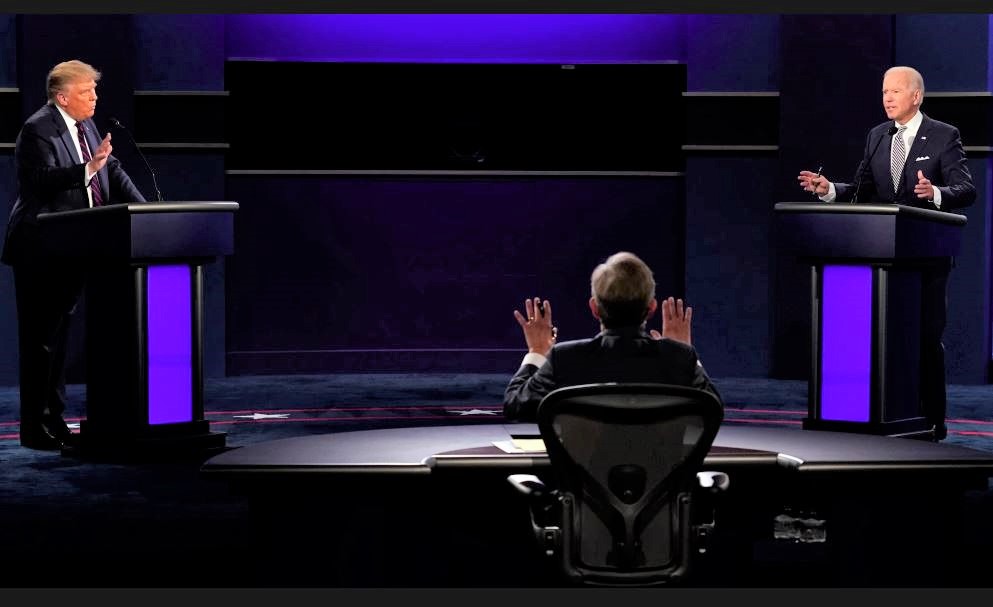
Moderator Chris Wallace, President Donald Trump, and Democratic candidate former Vice President Joe Biden at the first presidential debate Tuesday, Sept. 29, 2020, at Case Western University and Cleveland Clinic, Cleveland, Ohio. (AP photo / Patrick Semansky)
Debate synopsis
Simply awful.
Debate notes
- Upper Midwest regional perspective: Donald Trump didn’t do anything to endear himself to swing voters – especially the much-vaunted college-educated, white, suburban women demographic. Up here in Minnesota, we’re champions of the art of understatement; “smashmouth offense” is fine – on the football field.
- For Trump supporters waiting for Joe Biden to make a gaffe: With his incessant interruptions, Donald Trump never gave him a chance; the smart strategy to trip Biden up is to let him talk so he can have a chance to lose his train of thought.
- In the “Race and Violence in Our Cities” segment of the debate there were moments when moderator Chris Wallace could have had Biden on the ropes with penetrating follow-up questions, yet Trump, with his impetuous cross-talk, never gave Wallace a chance.
Executive summary
Awful.
August 17, 2020
USPP releases new research report on Joe Biden
 The Political Personality of 2020 Democratic Presidential Nominee Joe Biden. Working paper, Unit for the Study of Personality in Politics, St. John’s University/College of St. Benedict, August 2020. Abstract and link for full-text (22 pages; PDF) download at Digital Commons: https://digitalcommons.csbsju.edu/psychology_pubs/130/
The Political Personality of 2020 Democratic Presidential Nominee Joe Biden. Working paper, Unit for the Study of Personality in Politics, St. John’s University/College of St. Benedict, August 2020. Abstract and link for full-text (22 pages; PDF) download at Digital Commons: https://digitalcommons.csbsju.edu/psychology_pubs/130/
Annie Griebie concisely explains the conceptual framework, methodology, and results of the assessment of Vice President Joe Biden’s personality and leadership style. (9:42)
March 4, 2020
The 2020 U.S. presidential election-outcome forecast issued by the Unit for the Study of Personality in Politics on July 8, 2019, anticipated the surprising Super Tuesday Democratic primary results, with a surging Joe Biden defying polls and political pundits to seize the lead from an ascendant Bernie Sanders in the battle for the Democratic nomination for president.
The Presidential Electability Index (PEI), which has accurately predicted — before Super Tuesday — the outcome of every presidential election since 1996, was developed to forecast general election outcomes; however, the PEI heuristic model (which employs publicly perceived candidate personality traits as the predictor variable) proved to be exceptionally robust in projecting Biden’s unexpected Super Tuesday surge.
As conceptualized by the Personal Electability Index (PEI) forecasting model, Democratic contenders studied in the 2020 presidential election cycle and still in the race rank as follows in terms of predicted political impact as a general election candidate:
 1. Joe Biden
1. Joe Biden
Presidential Electability Index
Range: 22-33 (27.5 ±5.5)
 2. Bernie Sanders
2. Bernie Sanders
Presidential Electability Index
Range: 16-23 (19.5 ±3.5)
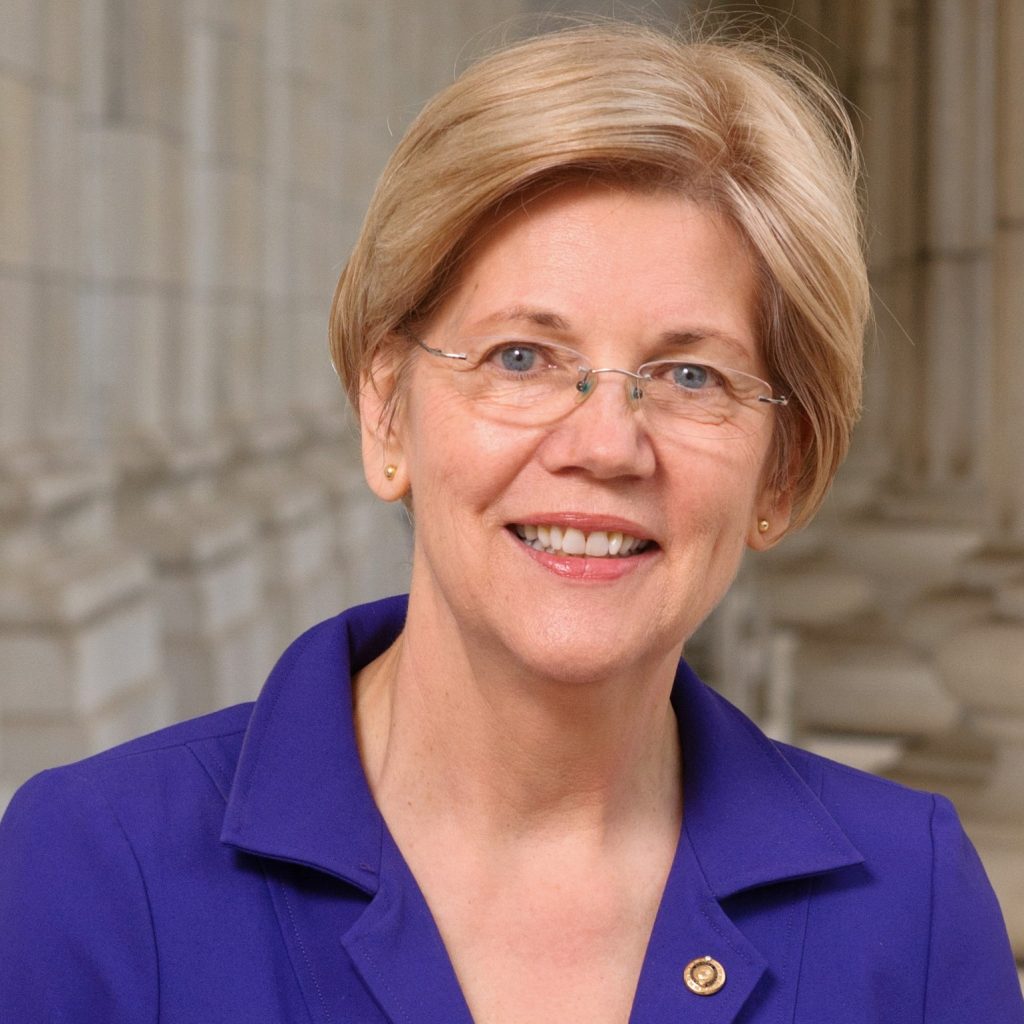 3. Elizabeth Warren
3. Elizabeth Warren
Presidential Electability Index
Range: 6-8 (7 ±1)
Executive summary
The Unit for the Study of Personality in Politics’ PEI model ranks Biden as more competitive than Sanders in a hypothetical general election matchup against Donald Trump.
Evidently — as suggested by the Super Tuesday Democratic primary results — Biden’s personal characteristics also had a stronger impact on Democratic primary voters than did Sanders’.
Topical research reports
The Political Personality of Former U.S. Vice President Joe Biden. Working paper, Unit for the Study of Personality in Politics, St. John’s University/College of St. Benedict, December 2019. Abstract and link for full-text (21 pages; PDF) download at Digital Commons: http://digitalcommons.csbsju.edu/psychology_pubs/122/
The Political Personality of 2020 Democratic Presidential Contender Bernie Sanders. Working paper, Unit for the Study of Personality in Politics, St. John’s University/College of St. Benedict, March 2020. Abstract and link for full-text (24 pages; PDF) download at Digital Commons: https://digitalcommons.csbsju.edu/psychology_pubs/126/
February 4, 2020
There’s no result yet from last night’s all-important, first-in-the-nation, election season-opening Iowa caucuses. … A vote-reporting debacle has delayed results in the contest, leaving candidates and voters furious and precincts scrambling to come up with answers. Officials from two Democratic campaigns say they were told an app used to tabulate the votes crashed, and the Iowa Democratic Party said it found inconsistencies in some vote sets.
In the absence of official election results 12 hours after the caucuses, I examined the Google Analytics report of visits to the Unit for the Study of Personality in Politics pages for Democratic presidential contenders in the 7 days up to and including the Iowa caucuses (Jan. 28–Feb. 3, 2020).
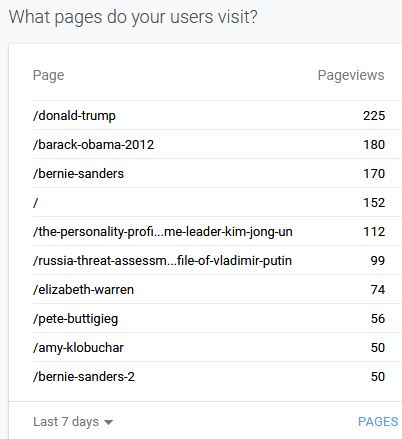
Note: Biden’s page (/joe-biden) ranked 20th in USPP page visits
Descriptive analytics for Iowa caucus contenders
 1. Bernie Sanders
1. Bernie Sanders
220 page visits (52.1%)
Note: 170 (2016 page) plus 50 (2020 page)
74 page visits (17.5%)
56 page visits (13.3%)
50 page visits (11.9%)
 5. Joe Biden
5. Joe Biden
22 page visits (5.2%)
January 23, 2020
Major polls at variance with USPP’s PEI-based election-outcome forecast
CNN poll: Bernie Sanders surges to join Biden atop Democratic presidential pack (Jan. 22, 2020)
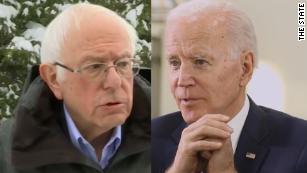
Vermont Sen. Bernie Sanders has improved his standing in the national Democratic race for president, joining former Vice President Joe Biden in a two-person top tier above the rest of the field, according to a new CNN poll conducted by SSRS. …
Overall, 27% of registered voters who are Democrats or Democratic-leaning independents back Sanders, while 24% favor Biden. Both … are significantly ahead of the rest of the field, including Massachusetts Sen. Elizabeth Warren at 14% and former South Bend, Indiana, Mayor Pete Buttigieg at 11%. Former New York Mayor Michael Bloomberg lands at 5% in the poll, while Minnesota Sen. Amy Klobuchar and businessman Andrew Yang each hold 4% support. Businessman Tom Steyer has 2%. No other candidate reaches 1% support. …
Comment
The CNN poll is consistent with a contemporaneous SurveyUSA poll, which shows Bernie Sanders marginally outperforming Joe Biden in a head-to-head matchup against Donald Trump if the election were held today:
The poll found that 52 percent of voters would choose Sanders and 43 percent Trump, giving the veteran senator a nine-point lead. Next was former vice president Joe Biden at 50 percent to Trump’s 43 percent, a seven-point lead.
Michael Bloomberg, the media and financial data billionaire, also led Trump by seven points at 49 percent to 42 percent. Democratic Massachusetts Senator Elizabeth Warren leads Trump 48 percent to 45 percent, a three-point advantage.
Pete Buttigieg, the former mayor of South Bend, Indiana, is also ahead of Trump by three points, at 47 percent to 44 percent. The tech entrepreneur Andrew Yang is ahead of Trump by two points, at 46 percent to 44 percent.
The billionaire hedge fund manager Tom Steyer is tied with Trump at 44 percent apiece, Democratic Minnesota Senator Amy Klobuchar loses to Trump by two points at 43 percent to 45 percent.
The CNN and SurveyUSA polls are both at variance with the USPP’s PEI-based election-outcome forecast issued July 8, 2019, which projects Trump will defeat any and all of the seven Democratic contenders studied this election cycle, including Bernie Sanders, Joe Biden, Elizabeth Warren, Pete Buttigieg, and Amy Klobuchar.
July 8, 2019
Unit for the Study of Personality in Politics forecasts 2020 U.S. presidential election result

The Personal Electability Index (PEI) developed at the Unit for the Study of Personality in Politics projects that none of the seven Democratic contenders assessed by the USPP will be able to defeat Donald Trump.
As conceptualized by the PEI forecasting model, candidates studied in the 2020 presidential election cycle rank as follows in terms of predicted political impact as a general election candidate:
 Donald Trump
Donald Trump
Presidential Electability Index
Range: 65-77 (71 ±6); dysfunctionality adjusted 45
 Joe Biden
Joe Biden
Presidential Electability Index
Range: 16-29 (22.5 ±6.5)
 Kamala Harris
Kamala Harris
Presidential Electability Index
Range: 13-27 (20 ±7)
 Bernie Sanders
Bernie Sanders
Presidential Electability Index
Range: 16-23 (19.5 ±3.5)
 Amy Klobuchar
Amy Klobuchar
Presidential Electability Index
Range: 13-23 (18 ±5)
 Beto O’Rourke
Beto O’Rourke
Presidential Electability Index
Range: 11-23 (17 ±6)
 Pete Buttigieg
Pete Buttigieg
Presidential Electability Index
Range: 10-18 (14 ±4)
 Elizabeth Warren
Elizabeth Warren
Presidential Electability Index
Range: 11-15 (13 ±2)
The PEI (derived from Millon Inventory of Diagnostic Criteria scale scores) has accurately predicted, before Super Tuesday, the outcome of every presidential election since 1996.
PEI Scores for Democratic and Republican Nominees, 1996-2016
For historical context, here are the personality-based electability scores for all major-party nominees since 1996, published before Super Tuesday in presidential election years, with the successful candidate listed first:
- 1996: Bill Clinton 37, Bob Dole 15
- 2000: George W. Bush 31, Al Gore -17
- 2004: George W. Bush 31, John Kerry 9
- 2008: Barack Obama 28, John McCain 26
- 2012: Barack Obama 10, Mitt Romney 6
- 2016: Donald Trump 62 (45 adjusted), Hillary Clinton 39 (29 adjusted)
May 6, 2019
Which Democratic presidential candidate is ‘electable’ now?
CNN’s “The Point with Chris Cillizza” reports:
The entrance of former VP Joe Biden into the 2020 field has altered the race’s dynamics in lots of ways but none more notable than this: Electability is now front and center.
Biden’s entire candidacy is based on the idea that (a) beating Donald Trump is all that matters and (b) he is by far best positioned to do so.
(Recent CNN polling suggests former Texas Rep. Beto O’Rourke is actually the strongest general election candidate against Trump right now. O’Rourke led Trump by 10 while Biden held a 6-point edge in a head-to-head match up with Trump.) …
USPP analysis
In contrast to the above analysis by CNN’s “The Point,” the Unit for the Study of Personality’s Presidential Electability Index (PEI), which has accurately predicted — before Super Tuesday — the outcome of every presidential election since 1996, suggests that Joe Biden will be a stronger candidate than Beto O’Rourke in a general election matchup with Donald Trump.
The PEI heuristic model employs candidate personality traits, as publicly perceived, to predict which contender will resonate most favorably with independent and unaffiliated voters who base their voting choice primarily on a candidate’s personal qualities as publicly displayed rather than on party-political affiliation or allegiance.
Below are the PEI scores for Donald Trump, Joe Biden, and Beto O’Rourke, based on studies conducted at the USPP.
 Donald Trump
Donald Trump
Presidential Electability Index
Range: 37-45
 Joe Biden
Joe Biden
Presidential Electability Index
Range: 16-29
 Beto O’Rourke
Beto O’Rourke
Presidential Electability Index
Range: 11-23
Related links


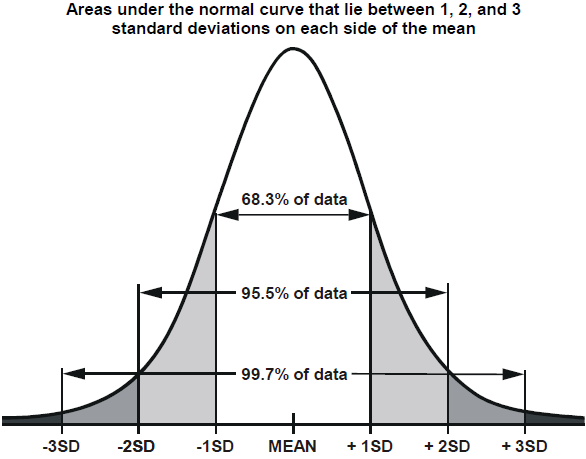

 2.
2.  3.
3.  4.
4. 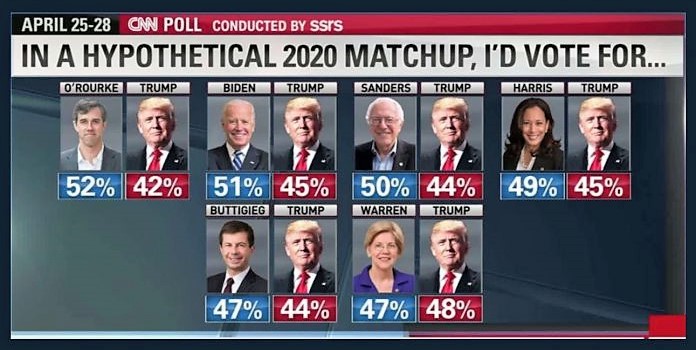









Follow Aubrey Immelman